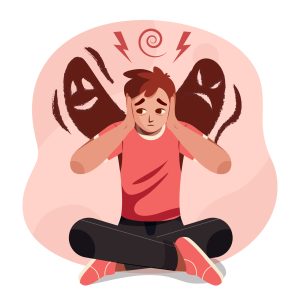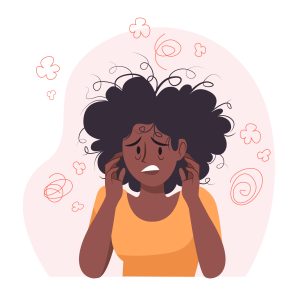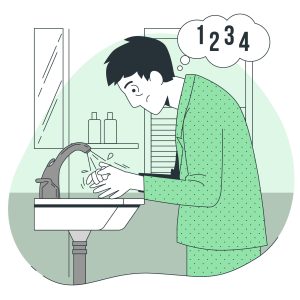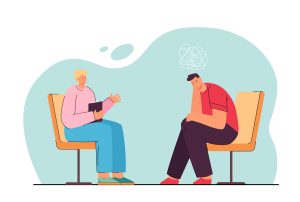
Understanding Common Causes Of Anxiety In Teenagers
Anxiety In Teenagers And Its Significance Adolescence is a crucial period marked by significant physical, emotional, and cognitive changes in an individual. Teenagers see these

Anxiety In Teenagers And Its Significance Adolescence is a crucial period marked by significant physical, emotional, and cognitive changes in an individual. Teenagers see these

Adolescence is a time of many shifts, both in the mind and the body. It is a transformative period, where there is a growing curiosity

How To Approach Mindfulness During Stressful Situations? In today’s times, mindfulness practices have become pretty well known as stress management practices. Even if one does

What is Agoraphobia? Agoraphobia comprises two words of Greek origin. “Agora” means “open or public space” and “phobos” means fear. Thus, agoraphobia is a type

Depression is one of the most common mental health disorders. Currently, around 5% of adults in the world are suffering from depression. With a large

OCD is a deeply misunderstood disorder. Often, we see people around us referring to someone as being “extremely OCD,” when they are talking about someone

Anxiety is a common emotion that many of us are familiar with. We may all experience it on certain occasions that may be stressful. This

When you are suffering from depression, you may feel like your entire life revolves around managing your negative thoughts and feelings caused by depression. You

Online counseling is a service that addresses mental health issues and is provided via video call, chat, phone, or email. Today, psychological support and counseling

Mental health is essential for our overall well-being, and when we struggle emotionally, it can affect every aspect of our lives. Psychological counseling is an

We specialize in combining psychotherapy with deep wellness practices like mindfulness and meditation and creating a customized mental health plan for individuals and organisations.
We specialize in combining psychotherapy with deep wellness practices like mindfulness and meditation and creating a customized mental health plan for individuals and organisations.

A young woman from another country moved with her family to live for one year in a town near the monastery. When, in the course of the year she discovered the monastery, she would periodically visit to have discussions with the Abbess. The Abbess introduced her to meditation, which became very meaningful for the young woman.
When the family’s year-long stay was drawing to an end, the young woman asked the Abbess, “In my country there is no Buddhism and no one has even heard about meditation. How can I continue to learn and deepen the practice you have started me on?”
The Abbess said, “When you return home ask far and wide for who, among the wise people, is recognized as having the greatest ability to listen. Ask that person to instruct you in the art of listening. What you learn about listening from such a person will teach you how to further your meditation practice.
― Gil Fronsdal, A Monastery Within: Tales from the Buddhist Path